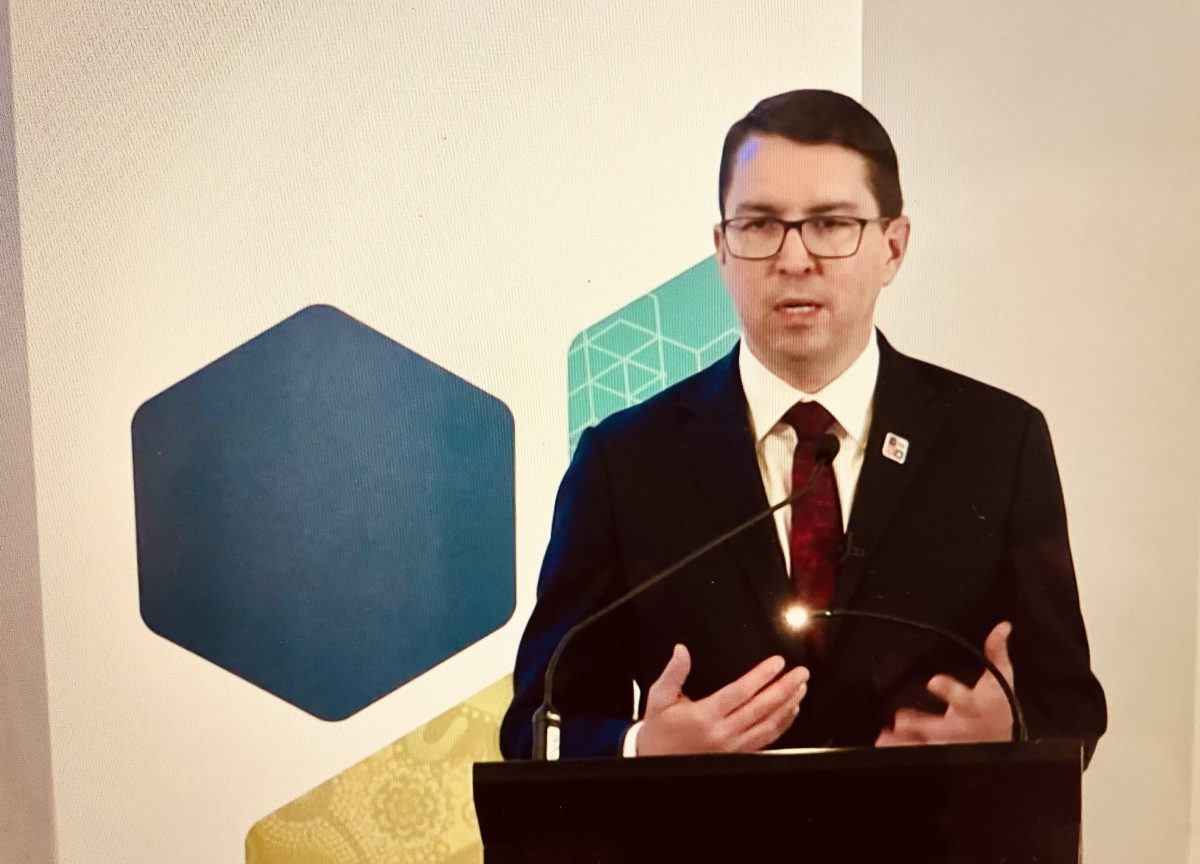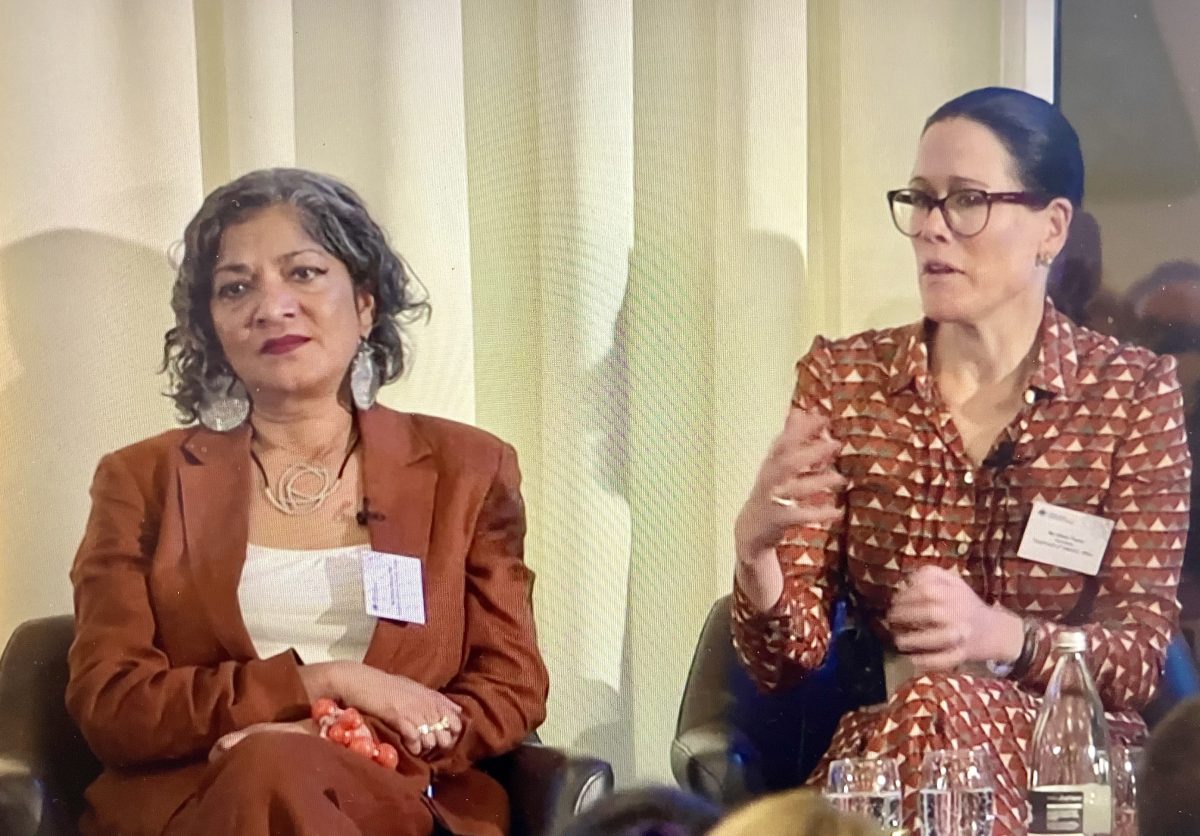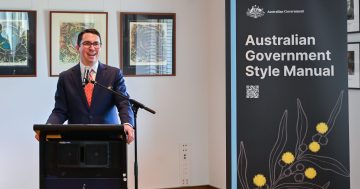
Assistant Minister for the Public Service Patrick Gorman addresses APS staff in Canberra. Photo: Region.
Public servants have received high praise from the Federal Government in the State of the Service Roadshow.
However, bullying in the sector and the Australian Public Service’s relationship with ministerial offices remain concerns for some employees who ask questions of their bosses.
Launched in Perth last week, the roadshow came to Canberra on Tuesday (5 March) and was attended by staff from about 80 APS agencies.
It aims to discuss the findings and data from the latest State of the Service report and share future directions with employees.
Delivering an opening address, Assistant Minister for the Public Service Patrick Gorman expressed his pride in today’s public service.
He said the first public service commissioner, Duncan McLachlan, who was appointed in May 1902 and served until his retirement in May 1916, set a high benchmark for the service, and he would be pleased with its evolution.
“Overwhelmingly, the officers of the Australian Public Service have been committed and professional,” Mr Gorman said.
“The service has supported governments to tackle the unique and recurring challenges our country has faced.
“From wars and economic downturns to pandemics and environmental crises. From early experiments with electronic data processing in the late 1950s to considering the risks and rewards of artificial intelligence in our time.
“And as the world has changed course or sped up, the Australian Public Service has adjusted and quickened its step.”
Turning to the state of our service today, the Minister said there was a lot to see when “we look within” and to the future.
“We see an APS workforce which is greatly changed since the federation era, where people who were once excluded are now critical to the service,” he said.
“A service which is much richer for the skills and experiences of women, First Nations, culturally and linguistically diverse staff and people with disability.
“We see service-wide bargaining delivering solutions to workforce pressures and reforms to APS terms and conditions of employment, including an APS-wide approach to flexible work, significant improvements to parental leave and improved conditions for First Nations and culturally diverse staff.
“We see agencies working hard to build the capabilities they need now and into the future, using strategic workforce planning to assess and address skills gaps.”
Mr Gorman said the APS was also looking at how mainstream services can be delivered more flexibly and how place-based approaches can complement universal safety nets.
Through APS Reform, he said, the government is committed to building a stronger service that delivers better outcomes for the community.
During a Q&A panel session following the Minister’s speech, audience members asked about a range of issues, from flexible working conditions to cultural change to the frustrations of inadequate IT systems.
But bullying of staff was raised early, with APS Commissioner Gordon de Brouwer making it clear that harassment in the workplace would no longer be tolerated.
“What you do matters, but your behaviour also matters, very much so,” the Commissioner said.
“We have zero tolerance for bullying behaviour.”
Department of Veterans’ Affairs secretary Alison Frame highlighted the stresses public servants can feel when their agency is subject to public inquiries such as a royal commission.
She said expressions of support to staff from bosses and the government are extremely valuable during such periods.
Office for Women executive director Padma Raman made strong mention of the sharpening awareness over sexual bullying and harassment in the service.

Executive Director of the Office for Women Padma Raman and Department of Veteran’s Affairs secretary Alison Frame answering audience questions. Photo: Screenshot.
Once questions were directed at the behaviour of government ministers, Mr Gorman said it was necessary to recognise that what is expected of public servants is different from that expected of elected representatives.
“That separation is important,” he said, while pointing out that there were codes of conduct for MPs and ministers that are enforced.
“Good, robust accountable debate like in senate estimates is there for a reason. To take these values here and apply them over there; I think we’ve crossed a line if we do that.”
On matters of integrity and giving frank and fearless advice, the Minister pointed out that while the Royal Commission into the Robodebt Scheme exposed so much that went wrong in the APS, it also revealed that many public servants were trying hard to do the right thing.
The Commissioner said providing good advice to the government was taken very seriously by the APS and was not used for personal benefit.
“I really don’t think people fabricate their advice in order to keep their jobs,” he said.
Dr de Brouwer later noted that the repercussions of the pandemic were still being felt across the service.
“The service hasn’t yet recovered from COVID,” he said.
“We’re seeing the aftermath of that in terms of people’s well-being.”


















